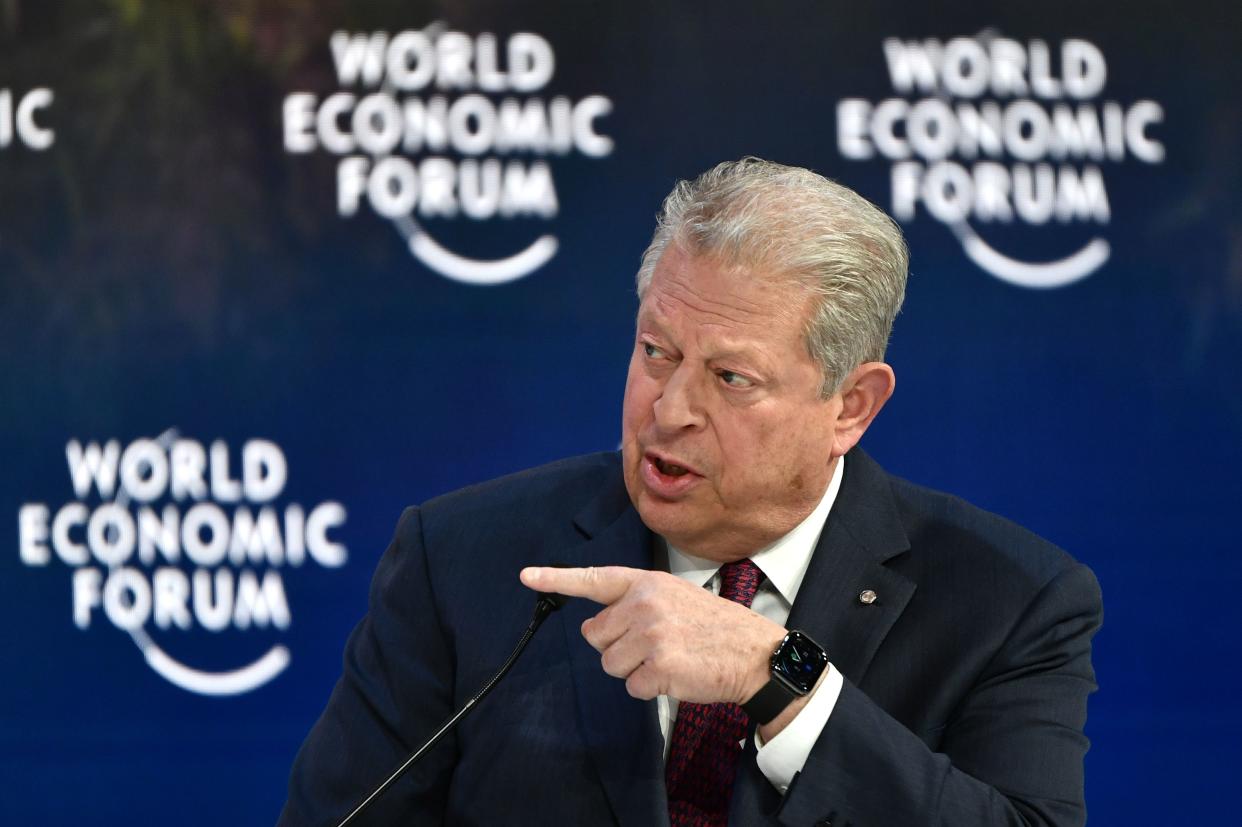Al Gore: We cannot allow oil giants to encourage plastic production

As the demand for fossil fuel energy sources declines in the shift to green power, the world cannot allow oil companies to encourage plastic production in order to make up for lost revenue, former US vice-president Al Gore warned on Friday.
“With transportation fuels going down, with electric vehicles and solar and wind pushing the market for fossil fuel-generated electricity going down, there is a hunger to make up that lost revenue by further increasing the production of plastics, and we cannot allow it,” Gore said.
READ MORE: Saudi Aramco CEO says world’s oil consumption will not decrease by 2040
Speaking at the World Economic Forum in Davos, Gore referenced the lower Mississippi region in the United States known as Cancer Alley.
Located between Baton Rouge and New Orleans, the heavily industrialised area became known for its clusters of cancer patients.
“It is filled with petrochemical facilities,” Gore said, noting that “petrochemicals are the third-largest emitter of industrial greenhouse gases.”
“There’s a brand new proposal from Formosa Plastics to build a giant new plastics facility, with 14 different facilities,” he said.
It would emit new greenhouse gasses equivalent to three huge coal plants, the former vice-president noted, warning that it would impose an even heavier burden of cancer on the people living in the region.
Gore said he will join a group of people in a number of months who are trying to rally opposition to this facility.
“You are going to see a mass movement around the world aimed at these proposals to further increase plastic production — and one thing people don’t know is that fracking of natural gas produces ethyl in much higher percentages than the normal, old production of oil and gas. And that makes plastic production even more profitable,” he said.



